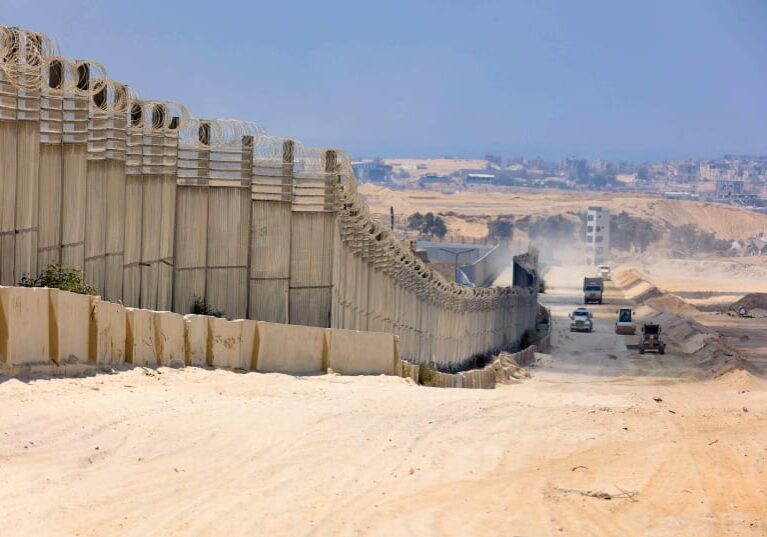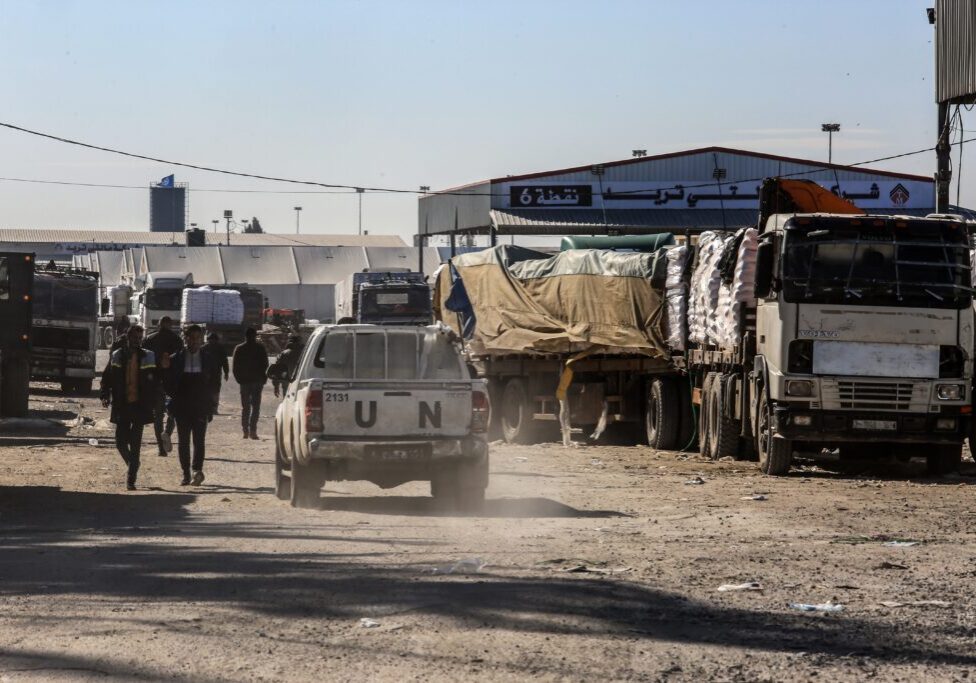Australia/Israel Review
Setbacks and Opportunity
Sep 26, 2011 | Amotz Asa-El

Israeli strategy in a changing Middle East
Amotz Asa-El
The King of Iraq had been executed and his prime minister lynched. Throughout the Middle East superpowers meddled, civil wars flared and mobs took to the streets. Survying this mayhem from Jerusalem, Israeli Prime Minister David Ben-Gurion developed an intuitive diplomacy that soon brought him to a secret, and unprecedented, meeting in Ankara with his Turkish counterpart.
The year was 1958 and Israel had noticed that Egyptian leader Gamal Abdul Nasser’s agitation across the Middle East was disagreeable to many of his non-Arab neighbours. Israel therefore emerged with what came to be known as the “Periphery Strategy”, which focused on Ethiopia, Iran and Turkey and even wooed Lebanon’s and Sudan’s Christian minorities, Iraq’s Kurds, and Morocco’s Berbers.
The Turkish part of this strategy was consolidated in August 1958, when Ben-Gurion and his host Adnan Menderes decided to upgrade their relations to full embassies, a symbolic measure backed by elaborate cooperation in assorted realms, from business and commerce to defence and farming.
The Turkish Premier did not last long – he was hanged three years later by a kangaroo court for having allegedly gone too far, in the secularist military’s view, in restoring Islam’s status in public life. Still, his warmth to Israel survived his own demise, as pro-American Ankara and Jerusalem quietly nurtured an anti-Arab axis in a region dominated by an increasingly pro-Soviet Arab alignment. Similar dynamics also developed between Ben-Gurion’s government, the Shah in Iran and Emperor Haile Selassie in Ethiopia.
The Periphery Strategy, which gave Israel a sense of belonging in a region where it was generally ostracised, became more complex in 1979, when Israel gained Egypt, thanks to the Camp David Accords, and lost Iran, in the wake of its Islamist Revolution. Even so, the principle of seeking a network of alliances in the face of its many regional enemies remained intact, producing in the 1980s a special relationship with Lebanon’s Christians and, the following decade, a peace agreement with Jordan.
Coupled with the demise of the Soviet Bloc, long the military backbone of Arab hostility to the Jewish state, Israel’s historic quest to defy its enemies through counter-alliances seemed a success. And nowhere was this success more lasting than in Turkey, which last decade emerged as a major strategic ally of the Jewish state, holding regular manoeuvres with its military and nurturing an elaborate economic relationship that included multi-million-dollar contracts for Israeli military hardware and a massive inflow of Israeli tourists.
But by September 2011 there was reason to fear that, for the first time in decades, Israel had all but lost its painstakingly-won network of regional alliances and the room to manoeuvre they provided.
Though technically unrelated, dramatic events which occurred over a few weeks in Turkey and Egypt, and then proceeded to Jordan, saw Israel’s ambassadors to these capitals return home.
Each of these setbacks had its unique circumstances. Ankara formally downgraded relations with Israel, following Jerusalem’s refusal to apologise for the deaths on May 31, 2010 of nine Turkish activists who attacked Israeli commandos as part of an effort to break Israel’s blockade of Gaza. Turkey demanded an Israeli apology while rejecting a UN report that ruled Israel’s blockade justified and legal.
Later that week, an Egyptian mob stormed the Israeli embassy in Cairo, shattered the tall fence around it with crowbars, and then invaded the building itself, breaking doors, windows and furniture, throwing documents out of the windows, and forcing the evacuation of the Ambassador and his staff back to Israel. Though Israelis blamed the Egyptian military government for failing to respond quickly, its attitude was the opposite of Turkey’s, since at the end of the day it resisted rather than appeased populist pressure to evict the Israeli Ambassador.
The Jordanian situation was a variation on the Egyptian theme, as the Israeli Ambassador returned to Jerusalem as a precaution ahead of a planned rally outside the Amman Embassy. As it turned out, when the demonstrators gathered, they added up to no more than several hundred who were outnumbered by security forces and then dispersed quickly and quietly.
The broad picture that emerged from all this is paradoxical: Israel’s regional diplomacy is suffering from the whims of a strong government in Ankara, and from the ineptitude of a weak government in Cairo, which embodies a broader pan-Arab anarchy following revolts that have toppled four autocrats and touched off a slew of civil and tribal wars.
Add to all this Iran’s continued menace to Israel’s existence, and the tensions generated by the Palestinian Authority’s manoeuvres at the UN, and you get a sense of diplomatic siege that Israel has not felt in decades.
Then again, while obviously alarming, Israel’s isolation is not as bad as some portray it, especially when compared with what it once was.
The first difference between Israel’s current situation and the setting of the original Periphery Strategy is that until the end of the Cold War major powers were inaccessible for the Jewish state. Moscow, Beijing, and New Delhi were off limits to Israeli business until two decades ago. Diplomatically, Israel’s presence was minimal in India, non-existent in China, and in Moscow and its satellites, relationships were severed after 1967. Today, all these countries, to the last of them, from Hungary to Vietnam, have full diplomatic ties with Israel, and often also elaborate economic and military ties with it. On a global level, these countries far outweigh Israel’s immediate neighbours, all of whom, excepting Turkey, are economic basket cases.
The same goes for Africa. After the 1973 war, almost all of sub-Saharan Africa surrendered to Arab pressure and severed diplomatic ties with Israel. Since the late 1980s these ties have been restored, and Africa is now brimming with Israeli investors, experts and advisers.
Meanwhile, as Israeli diplomats struggled to combat the Palestinian effort to isolate the Jewish state in the UN, it emerged that countries like Poland, Bulgaria or the Czech Republic have changed so radically since the days when they were part of the automatic anti-Israel camp that they now figure prominently in the pro-Israeli camp.
At the same time, Turkey’s new policy of looking east instead of west has alarmed a colourful circle of neighbours who share unpleasant historic memories from the Ottoman Empire. That goes not only for Greece, Cyprus, Armenia, and the Kurds, but also for Romania, Bulgaria, Serbia, Croatia, Macedonia, Hungary, and Poland – all of which recall in their popular cultures bloody wars with, and/or unpleasant occupations by, the Ottoman Empire. In all these places, there is a growing suspicion that Prime Minister Recep Erdogan is leading Turkey back on a path of bullying and adventurism that in their respective histories rings all too familiar.
This sentiment is also common across the Arab world, which was ruled by the Ottomans for centuries. During a visit to Egypt just days after downgrading ties with Israel, Erdogan managed to both offend the local Islamists – by saying that Egypt should adopt a secular constitution like Turkey’s – and to provoke secular revolutionaries – whom he urged to protest less, and thus give the government a chance to implement reforms.
More substantively, Erdogan has so far failed to convince Egypt to follow his lead in reshaping the Middle East. True, the military government agreed to launch joint Egyptian-Turkish naval manoeuvres, and they also signed some bilateral agreements with Erdogan.
However, Cairo declined to join Ankara’s free trade zone with Syria, Lebanon and Jordan, and was also offended by Erdogan’s boasts that he, unlike Egypt, had evicted his Israeli Ambassador. Analysts in Cairo say that the anti-Israeli agenda does not supply enough substance with which to offset suspicions that Ankara is out to restore its regional leadership at Egypt’s expense.
Suspicion of Ankara’s designs is particularly rife in Cyprus, partly occupied by Turkey since 1974, and in Greece, whose centuries-long bad blood with Turkey culminated in horrible wars during the 1920s. In Armenia, too, Erdogan’s initial promises to produce a historic rapprochement with the nation that was famously victimised by the Ottoman Empire in its last years, has produced nothing but stalemate and new hard feelings.
In these countries, Erdogan’s frequent admonitions of Israel for its record vis-à-vis the Palestinians are seen as moral hypocrisy and political stratagem. That is why his threats to challenge Israeli and Cypriot gas drilling in the Mediterranean were met with hostility in Greece, which warned that Athens would confront Ankara in such an event.
Meanwhile, Turkey’s once cozy relationship with Iran has gone sour after Ankara agreed to host American missile-defence systems, while relations with Syria have altogether collapsed in the wake of the Assad regime’s war on its citizens. On that front, Arabs suspect Sunni Turkey wants to see a Sunni-led Syrian proxy. Add to this Turkey’s displeasure with formerly Sunni-led Iraq’s emergence as a Shi’ite-led, American creation with a strong Kurdish autonomy, and you get what amounts to a caricature of Erdogan’s much-heralded ambition to achieve a policy of “zero problems with neighbours”.
Turkey’s quest to return to the Middle East, even if unsuccessful so far, explains its treatment of Israel, according to Israeli diplomats. The way they see it, Erdogan’s assumption is that anti-Israeli bravados will cost him little internationally, and at the same time prove profitable regionally. In the populist sense he has been vindicated, as Erdogan has become a hero of the kind of mob that stormed the Israeli Embassy in Cairo. In terms of Turkey’s interests however, Turkey is losing lucrative business with Israel while diplomatically, it is arguably fostering an image of an ungrateful, unreliable, and disingenuous partner.
For the Netanyahu Government, the Middle Eastern tumult calls for tactical poise and strategic opportunism. That is why Jerusalem is generally refraining from answering Erdogan’s verbal barbs, that is why it is taking no sides on any of the many intra-Arab fronts that have flared from Libya through Syria to Yemen and Bahrain, and that is why rather than lecture to its neighbours about their situation, as Erdogan did in Cairo, Jerusalem has focused on restoring the ambassadors and their staff to Cairo and to Amman.
Judging by their cooperation with this Israeli aim, it appears Arab governments now think they must demonstrate control of their angry streets, or they will lose the world’s respect and their citizens’ obedience. And judging by the increasingly warm relations Israel is experiencing with all the countries suspicious of Turkey, from Bulgaria, Greece, and Cyprus to Armenia and Saudi Arabia, it is clear that the fronts Israel faces are never monolithic – there are always cracks within them and potential allies beyond them. That’s how it was when Ben-Gurion conceived the Periphery Strategy, and, though the actors have since changed, it remains so to this day.
Tags: Egypt






